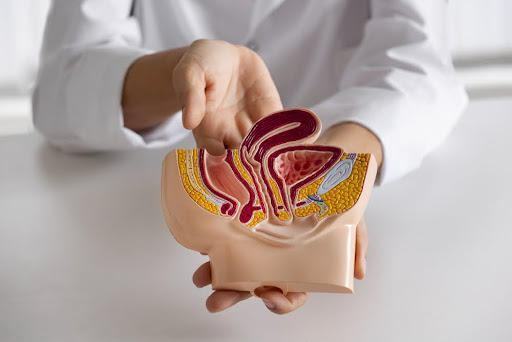
Sleeve Gastrectomy in Hyderabad (Gastric Sleeve Surgery)
- Home
- Bariatric Surgery in Hyderabad (Weight Loss Surgery)
- Sleeve Gastrectomy in Hyderabad (Gastric Sleeve Surgery)
Sleeve Gastrectomy in Hyderabad (Gastric Sleeve Surgery)
“At first they will ask why you are doing it, later they will ask how you did it.”
Obesity has emerged as one of the most dreaded diseases of this century. Obesity has poor effects on almost every organ in the body. Unfortunately, there is no magic pill yet, that can help people to lose weight. People who have attempted to lose weight, know how difficult it is to not only lose weight but also to maintain the weight loss. Unfortunately, more often than not, they meet with disappointment and once the weight loss program is stopped, they tend to gain more weight than what they had lost. This entire process can be extremely disheartening and disappointing for the patients.
If you have tried hard to lose weight without success and the weight is now bearing you down, you have chosen the right option because bariatric surgery is the only way at the moment that can lead to sustained weight loss in morbidly obese patients. Bariatric surgery, not only helps to lose massive amount of weight, but it also makes it easier to maintain the weight loss.
Laparoscopic Sleeve Gastrectomy in Hyderabad
Laparoscopic sleeve gastrectomy/ gastric sleeve is one of the most commonly performed weight loss/bariatric procedure across the world. It was first performed in the United States of America in the late 1990s as a part of the duodenal switch surgery. Later it was seen, that it led to significant weight loss by itself and a second stage procedure was not required in a lot of cases. In a few years, it gained popularity as a standalone procedure. It is a technically easier procedure to perform and leads to good weight loss results.
Who is a right candidate for undergoing laparoscopic sleeve gastrectomy in Hyderabad?
The IFSO- APC (International Federation for Surgery for Obesity and Metabolic Disorders – Asia Pacific Chapter) guidelines for weight loss surgery are as under:
- Bariatric surgery/obesity surgery/weight loss surgery must be considered for the treatment of obesity for acceptable Asian candidates with BMI ≥ 35 Kg/m2 with or without any associated diseases.
- Bariatric surgery/metabolic surgery must be considered for the treatment of type 2 diabetes or metabolic syndrome for patients who are inadequately controlled by lifestyle alterations and medical treatment for acceptable Asian candidates with BMI ≥ 30 Kg/m2.
- Bariatric surgery/metabolic surgery may also be considered as a non-primary alternative to treat inadequately controlled type 2 diabetes or metabolic syndrome for suitable Asian candidates with BMI ≥ 27.5 Kg/m2.
Laparoscopic sleeve gastrectomy is usually preferred in younger patients, with shorter duration of type 2 diabetes, not too many associated co-morbidities.
It is also performed as a first stage surgery in super-obese patients. Sleeve gastrectomy can easily be converted into other bariatric and metabolic procedures such as Roux-en y gastric bypass, duodenal switch, SADI-S, duodeno-jejunal bypass and ileal transposition at any given point in time.
Acid reflux and GERD is seen in 15 to 20% patients after a sleeve gastrectomy and hence it must not be performed in patients suffering from acid reflux disease and hiatus hernia.
How is it done
- This surgery is performed by laparoscopic or key-hole technique. In this technique, 4 to 5 tiny 0.5 to 1 cm cuts are made on the abdomen and the entire surgery is performed using a camera and laparoscopic instruments. This is minimally invasive and there is no big cut like the surgeries performed earlier. All the stitches are absorbable and no stitches are to be removed later. Advantages of laparoscopic surgery are- less pain, faster recovery and earlier return to work. Most patients are discharged from the hospital 36 to 48 hours after their operation depending on their clinical status.
- Single incision sleeve gastrectomy: In this technique, a 2 cm longitudinal cut is made in the navel and the entire surgery is performed through this cut. Once this heals, the scar gets buried in the belly button and it is not visible. It is more cosmetic, less painful and patient can keep the procedure confidential. It is more popular among young, unmarried women.
- During the surgery, a vertical sleeve of stomach is created over a 36 or 38 French bougie using surgical staplers. In our practice we prefer to over-sew this staple line with sutures for added security and minimizing complications like leaks and bleeding. The remaining part of the stomach is removed out of the body through one of the 1 cm incisions.
What is the mechanism for weight-loss
Following mechanisms lead to weight loss after laparoscopic sleeve gastrectomy.
- Small stomach pouch restricts the amount of food that a person can eat. There is significant caloric restriction after this surgery.
- The feeling of fullness/ satiety sets in much earlier than before.
- The part of the stomach that is removed, contains the hunger hormone Ghrelin. As the Ghrelin levels come down after surgery, hunger sensation is very low.
- After this surgery, the stomach empties at a faster rate and this leads to activation of certain intestinal hormones which aid in weight loss as well as remission of co-morbidities such as type 2 diabetes etc.
- There are many other mechanisms and yet unidentified role of bile acids and gut flora that may help in weight loss and remission of co-morbidities after this surgery.
Results after laparoscopic sleeve gastrectomy
- Patients may lose up to 65 to 75% of their excess weight over a period of 12 to 18 months after this surgery. This can become better if the patient modifies his/her lifestyle and follows a strict diet and exercise program as guided by the team. Best results are seen in patients who are motivated to follow a healthy lifestyle.
- This surgery also leads to a significant improvement in associated diseases such as type 2 diabetes, high blood pressure, high cholesterol, heart disease, risk of venous thrombo-embolism, gout, acid reflux, fatty liver, PCOD, infertility, joint pains, obstructive sleep apnoea and so on.
Long term weight loss goals
- Bariatric surgery must not be seen as a short cut to weight loss. The patient and the doctor must work as a team to achieve best results in the long term. It is extremely important to be diligent with your follow-up to get best results after surgery.
- Long term weight loss goals can be achieved with help of a team that consists of a doctor, an endocrinologist, a nutritionist and a psychologist. This support team of experts will keep you motivated, provide advice and help you to work through weight-loss barriers.
- Attending support group meetings is very important for long term success after bariatric surgery.
Who is not eligible for weight loss surgery
- Pregnant women
- Patient with acid reflux disease and hiatus hernia
- Patient with gastric outlet obstruction
- Patients with severe psychiatric disorders
- Smokers
- Patients with inability to take nutritional supplements
- Patients who are medically unfit for surgery and anesthesia
Complications
- Laparoscopic sleeve gastrectomy is as safe as any other surgery like a knee replacement or a gall bladder surgery. Infact the complication rate is much lower than cancer surgery or surgery for esophagus, valve replacement etc.
- Staple line leaks, acid reflux disease and weight regain are some of the complications of sleeve gastrectomy. The team will discuss the pros and cons in detail with you during your consultation.
- It is important to follow the protocols set by the team and to take nutritional supplements as advised. Failure to do so may result into nutritional deficiencies in future.
- Smokers must strictly stop smoking. Smoking can lead to complications that can be life-threatening. If you are not confident about giving up smoking after this surgery, our advice is that you must not undergo the surgery at all.
Dr. Aparna Govil Bhasker has one of the highest experiences in performing laparoscopic as well as single incision sleeve gastrectomy in the country. The biggest plus of coming to us for your surgery is our personalized care. Every patient is equally important for us and we assure you that your smallest queries will be addressed at the earliest.
It is also extremely important for the patient to be mentally prepared and be positive before undergoing a surgery. A positive attitude goes a long way in getting good results after surgery. We request you to be positive and have faith. We wish you all the best for your journey of weight loss. Cheers! to being a different you.
Last but not the least- “There is no shortcut. It takes time to create a better and stronger version of yourself.”
Dr. Aparna Govil Bhasker
Bariatric and Laparoscopic Surgeon
Apollo Spectra Hospital, Plot No. 1 & 6, Kothaguda X Roads, Near Harsha Toyota Showroom, Kondapur, Hyderabad, Telangana 500032
About Dr. Aparna Govil Bhasker
Dr. Aparna Govil Bhasker is an accomplished Bariatric Surgeon and Laparoscopic GI Surgeon. Extremely passionate about her field of specialization. She completed her MBBS and MS in General Surgery in 2006, from Mahatma Gandhi Institute of Medical Sciences (MGIMS), Sewagram. Set up in 1967 by none other than the first health minister of India, Ms. Sushila Nayar, MGIMS is deeply rooted in Gandhian ethics. Read more


Surgeon in India


Bariatric Surgery: Pros and Cons

Types of Hernias and Their Treatment Options Explained
- Intra-Gastric Balloon Insertion Surgery
- Laparoscopic Adjustable Gastric Banding Surgery
- Gastric Sleeve Surgery / Laparoscopic Sleeve Gastrectomy
- Single Incision Sleeve Gastrectomy Surgery
- Laparoscopic Roux-en Y Gastric Bypass Surgery
- Laparoscopic Banded Roux-en Y Gastric Bypass Surgery
- Laparoscopic Mini Gastric Bypass Surgery /Omega Loop Bypass
- Laparoscopic Sleeve Gastrectomy with Duodeno-Jejunostomy Surgery
- Laparoscopic Duodenal Switch Surgery
- Laparoscopic Sleeve Gastrectomy with Duodenal Ileostomy (SADI) Surgery
- Laparoscopic Revisional/Redo Bariatric Surgery
- Metabolic Surgery for Diabetes
- Terms & Conditions
- Privacy Policy
- Sitemap
